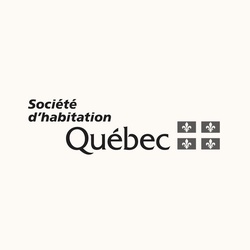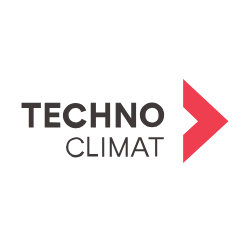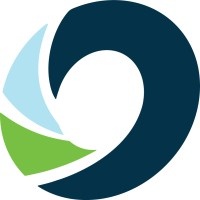
Open
Program authorizing the financing of the operating deficit of certain low-income housing projects
Last Update: October 27, 2025
QC, Canada
Funds operating deficits for low-income housing organizations in Quebec
Grant and Funding
At a glance
Funding available
Financing goals
Increasing community impact
Strengthening governance
Eligible Funding
- Up to 100% of project cost
Timeline
- Open Date : December 20, 2023
- Closing date : December 31, 2026
Eligible candidates
Eligible Industries
- Real estate and rental and leasing
- Other services (except public administration)
- Public administration
Location
- Quebec
Legal structures
- Non-profit
- Public or Parapublic institution
- Social economy enterprise
- Non-financial cooperative
Annual revenue
- All revenue ranges
Organisation size
- All organization sizes
Audience
- All groups
Non-profit candidates
Sector of operation
- Social Services
- Economic, Social and Community Development
- Housing
Target groups
- Low-income individuals / families
Revenue structures
- All structures
Scope
- Municipal
- Provincial
Overview
The Program Authorizing the Financing of the Operating Deficit of Certain Low-Income Housing Projects provides up to 100% funding of the annual operating deficit for eligible low-income housing entities in Quebec. Its purpose is to ensure the continued availability of affordable housing by covering the gap between rental income and operation costs for qualified cooperatives, non-profit organizations, and housing offices.
Activities funded
- Financing of operating deficits for low-income housing projects (HLM) that no longer have existing government authorization.
- Support for renovated, expanded, or reconstructed low-income housing buildings requiring new operational funding agreements.
Eligibility
- The applicant must be a cooperative, a non-profit organization, or a housing office that owns or manages an eligible low-income housing project.
- The project must be part of the low-income housing portfolio for which the Société d’habitation du Québec is no longer authorized, or will no longer be authorized by December 31, 2026, to subsidize the annual operating deficit.
- The project may also be eligible if it has been reconstructed or expanded with funding from the Société, under a government-approved program or decree, and lacks current authorization for operating deficit subsidy.
Who is eligible?
- Cooperatives owning or managing eligible low-income housing projects
- Non-profit organizations owning or managing eligible low-income housing projects
- Housing offices (offices d’habitation) owning or managing eligible low-income housing projects
Who is not eligible
- Private for-profit companies not operating as a cooperative, non-profit organization, or housing office.
- Entities that do not own or manage eligible low-income housing projects (HLM) as defined by the program.
Eligible expenses
- The annual operating deficit of eligible low-income housing properties, calculated as the difference between operating revenues and operating expenses according to the regulatory framework in force.
Eligible geographic areas
- Quebec
How to apply
1
Confirm program eligibility
- Verify that your organization is a cooperative, non-profit organization, or housing office managing or owning an eligible low-income housing project (E.I.)
- Ensure the E.I. is not authorized for continued deficit funding by December 31, 2026, or has been reconstructed/expanded without required funding authorization
2
Assess eligible financial needs
- Review the applicable regulatory framework of the Non-Profit Housing Program, public and private components (PSBL)
- Determine the eligible annual operating deficit as per program guidelines
3
Prepare application documents
- Prepare required financial and operational documentation showing the deficit and compliance with program norms
- Ensure supporting documents are complete for application submission
4
Submit the application
- Submit the application and supporting documents to the Société d’habitation du Québec
- Verify submission procedures and deadlines according to program guidelines
5
Await evaluation results
- Monitor the review process for evaluation by the authorities
- Respond to additional information requests if needed
Additional information
- The program is authorized for the period ending December 31, 2026.
- An evaluation of the program will be submitted to the Secrétariat du Conseil du trésor by August 31, 2026.
- The Société d'habitation du Québec is responsible for maintaining operating agreements with involved organizations and municipalities throughout the duration of the program.
Apply to this program
Frequently Asked Questions about the Program authorizing the financing of the operating deficit of certain low-income housing projects Program
Here are answers to the most common questions about the Program authorizing the financing of the operating deficit of certain low-income housing projects. This section explains what the program is, how much funding is available, eligibility requirements, application deadlines, and other important details to help you determine if this grant is right for your business.
What is the Program authorizing the financing of the operating deficit of certain low-income housing projects?
How much funding can be received?
What is the deadline to apply?
Who is eligible for the Program authorizing the financing of the operating deficit of certain low-income housing projects program?
What expenses are eligible under Program authorizing the financing of the operating deficit of certain low-income housing projects?
Who can I contact for more information about the Program authorizing the financing of the operating deficit of certain low-income housing projects?
Where is the Program authorizing the financing of the operating deficit of certain low-income housing projects available?
Apply to this program
More programs like this

Grant and FundingOpen
ÉcoPerformance — Recommissioning of building mechanical systems
Gouvernement du QuébecFunding to optimize the operation of building mechanical systems

Grant and FundingOpening Soon
Flood Resilience and Adaptation Program (PRAFI) - Resilient Development Component
Ministry of Municipal Affairs and HousingSupports municipal flood resilience and adaptation infrastructure projects

Grant and FundingOpening Soon
Flood Resilience and Adaptation Program - Community Resilience and Relocation Component
Ministry of Municipal Affairs and HousingSupports municipal relocation and resilience projects in flood-risk areas

Grant and FundingClosed
Call for projects to combat homophobia and transphobia
Gouvernement du QuébecFunds Quebec organizations’ projects combating homophobia and transphobia

Grant and FundingClosed
Accelerating the local climate transition - Component 1
Environnement Québec (MELCC)Supports municipal climate action planning and implementation in Quebec

Grant and FundingOpen
Innovative Projects Program
Hydro-QuébecSupports innovative, energy-efficient projects for multi-building developments

Grant and FundingOpen
Technoclimat
Environnement Québec (MELCC)Financial assistance for the demonstration of new technologies in Quebec

Tax CreditsWage Subsidies And InternsOpen
Financial assistance for the hiring of a person to integrate a job on a long-term basis
Gouvernement du QuébecSupports employers hiring candidates facing employment barriers

Grant and FundingOpen
Charge+
Propulsion QuebecSupports installation of electric vehicle charging infrastructure in Quebec

Partnering and CollaborationGrant and FundingClosed
International Climate Cooperation Program (ICCP)
Environnement Québec (MELCC)Supports Quebec-driven climate action projects in francophone countries
Sign up to our platform to access the Program authorizing the financing of the operating deficit of certain low-income housing projects information sheet for free
Get access to 4,000+ programs, practical guides, personalized alerts, and an AI assistant to support your grant applications.